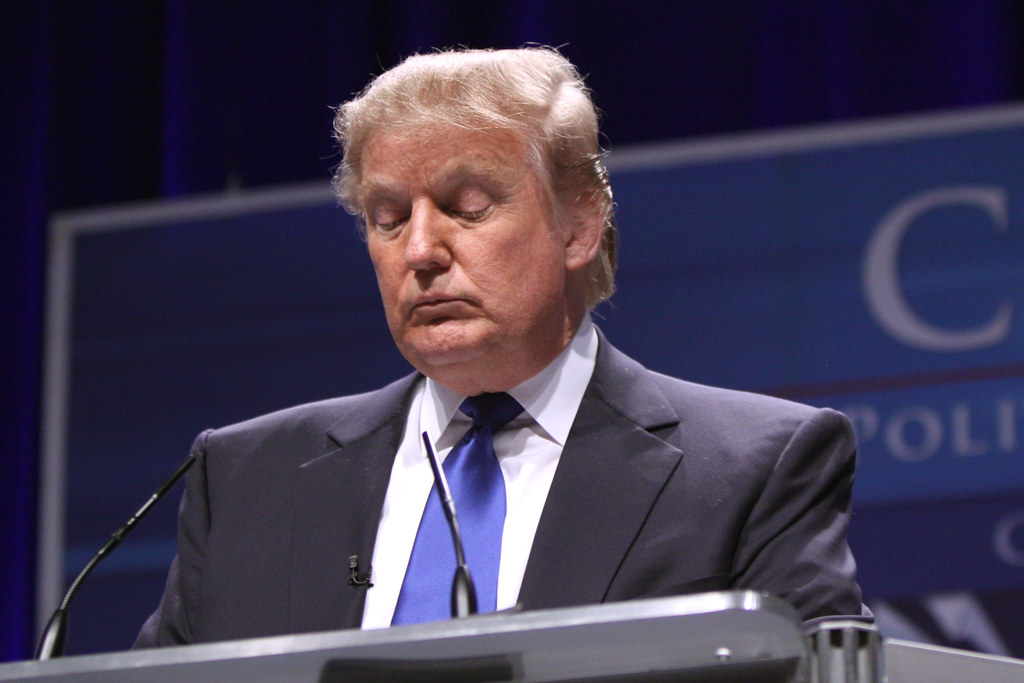Key Takeaways:
- A biographer says some top insiders doubted President Trump’s smarts.
- Sam Nunberg, a Trump adviser, once called him an idiot.
- Nunberg now claims Trump proved him wrong by winning in 2024.
- Communications director Steven Cheung blasted biographer Michael Wolff.
- Nunberg has a history of controversial comments and actions.
A biographer’s recent comments have stirred fresh debate about President Trump’s leadership. Michael Wolff shared a story of doubt and drama from inside the White House. His tale involves a blunt remark from Sam Nunberg, a longtime Trump aide. Then Nunberg changed his tune after the 2024 election. The twists highlight deep tensions among those closest to power.
A Bold Claim by Michael Wolff
Michael Wolff has chronicled the Trump era in several books. He’s known for revealing behind-the-scenes drama. On a recent podcast, he said some of Trump’s own advisers did not trust his judgment. Wolff pointed to a claim about autism and Tylenol use in pregnancy. He called that view “medically unsupported.” Surprisingly, even Dr. Mehmet Oz, who ran Medicaid for Trump, seemed doubtful. Wolff said this moment made him recall a key conversation from 2016.
Revealing the Trump adviser remark
Right after Trump’s first election win, Wolff spoke to Sam Nunberg. Nunberg earned the nickname “Trump whisperer” for his deep ties to the president. Wolff told Nunberg he thought Trump could surprise in a positive way. However, Nunberg replied sharply: “You don’t get it, do you? He’s an idiot!” At that moment, Wolff said he realized what many insiders feared: Trump lacked the intellect to make wise decisions.
Adviser Backtracks After Reelection
When asked about this story, Nunberg did not deny the words. Instead, he said they no longer apply. He pointed to Trump’s 2024 win as proof he was wrong. Nunberg said, “That was a long time ago, and President Trump has certainly proved me wrong.” He argued that reelection shows the president’s skill and appeal. This shift highlights how advisers bend to new realities in politics.
A Fiery Response from the Communications Director
Meanwhile, Steven Cheung, Trump’s combative communications chief, attacked Wolff’s credibility. He called Wolff a “lying sack of s—” and said he suffers from “Trump Derangement Syndrome.” Cheung claimed Wolff makes up stories for attention. His harsh words show how fiercely Trump’s team defends against criticism. They also hint at how internal rifts become public battles.
The Troubled History of Sam Nunberg
Nunberg’s career has seen ups and downs. In 2018, he made headlines for a bizarre TV outburst. He first refused to answer questions from the Russia special counsel. Then he quickly agreed to cooperate. Observers speculated he was drunk, though he denied it. Later, he was fired over racist comments he made on Facebook. Yet he stayed close to Trump and kept influencing policy. His flip-flop on calling Trump an idiot adds another chapter to his roller-coaster path.
Why This Matters for Trump’s Inner Circle
This story offers a rare look at divisions inside the White House circle. First, it suggests some advisers worried about Trump’s ability to lead. Second, it shows how past doubts get buried when political power shifts. Finally, it proves that personal loyalty often trumps frank feedback in high-stakes politics. As Trump eyes another term, such tensions could resurface when tough decisions loom.
Lessons for Future Campaigns
Several lessons stand out from this saga. First, advisers who once speak freely can quickly change their tune. Politics often demands loyalty over truth. Second, public spats distract from policy goals. Hammering Wolff in the press sidelines debates over real issues. Third, serving a strong-willed leader sometimes means hiding doubts. Deep worries about judgment may stay below the surface until they boil over.
The Role of Biographers in Shaping Narratives
Biographers like Michael Wolff play a powerful role in shaping public opinion. They collect insider tales and share them with the world. However, their accounts rely on sources who may have personal agendas. In this case, Nunberg’s original claim and his later denial both reflect his changing loyalties. Readers must weigh the credibility of each side. Meanwhile, such books and podcasts will keep fueling debates long after they air.
Looking Ahead: Trust and Transparency
As Trump moves forward, his team will need unity more than ever. Trust among advisers is key for effective leadership. Yet these recent revelations hint at lingering doubts. If advisers hide concerns, decision-making could suffer. Conversely, honest feedback can help any leader improve. The challenge for Trump’s circle is to balance loyalty with the courage to speak up.
Final Thoughts
This episode shows how high-stakes politics breeds drama and division. A blunt insult from a top aide can reshape how we view leadership. Then a quick backtrack can leave us wondering who really speaks the truth. Ultimately, this tale reminds us that power demands both unity and honesty. As the Trump era marches on, we can expect more such revelations and reversals.
Frequently Asked Questions
What led Michael Wolff to share this story now?
He discussed it on a recent podcast to highlight doubts in Trump’s inner circle.
Why did Sam Nunberg call Trump an idiot?
Nunberg believed at the time that Trump lacked the intelligence to lead.
How did Nunberg justify his later change of heart?
He said Trump’s 2024 reelection proved his earlier doubts wrong.
What does this episode reveal about White House advisers?
It shows that advisers may doubt their leader’s judgment but still show loyalty.

